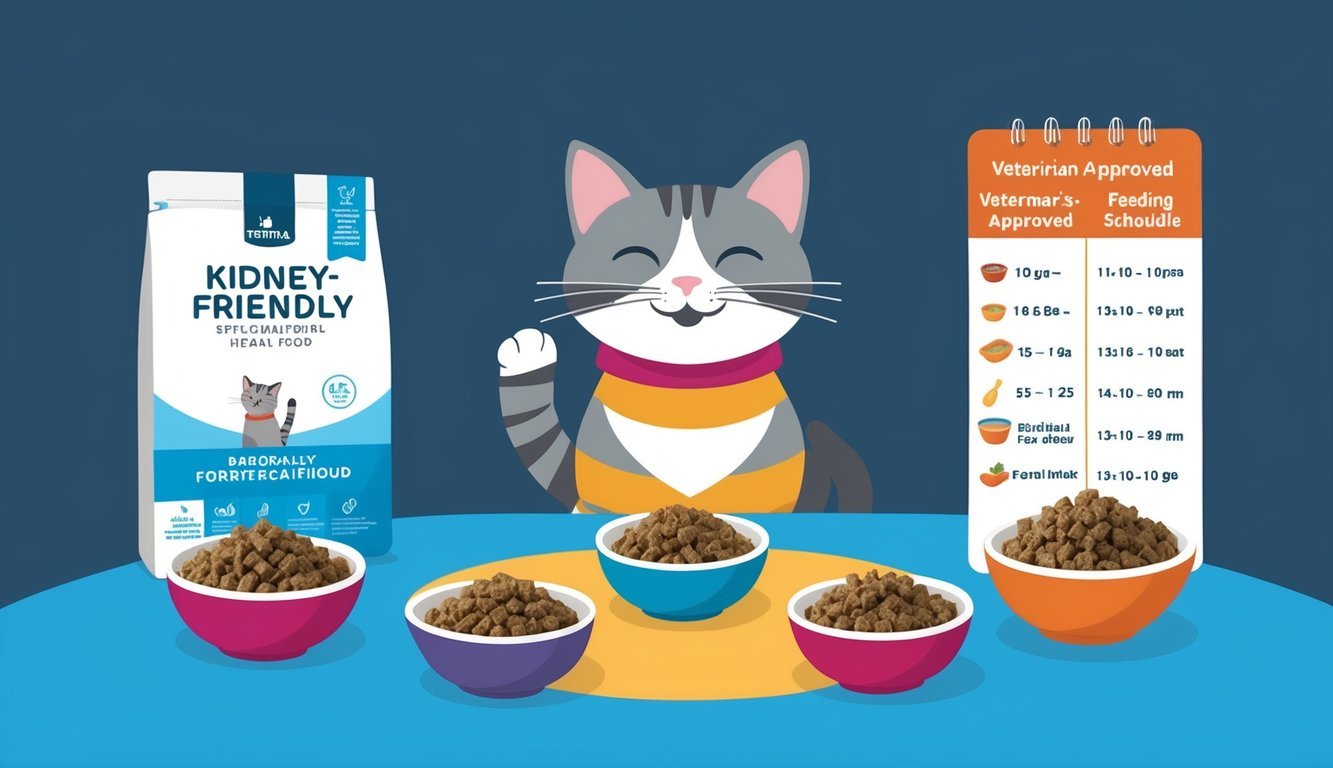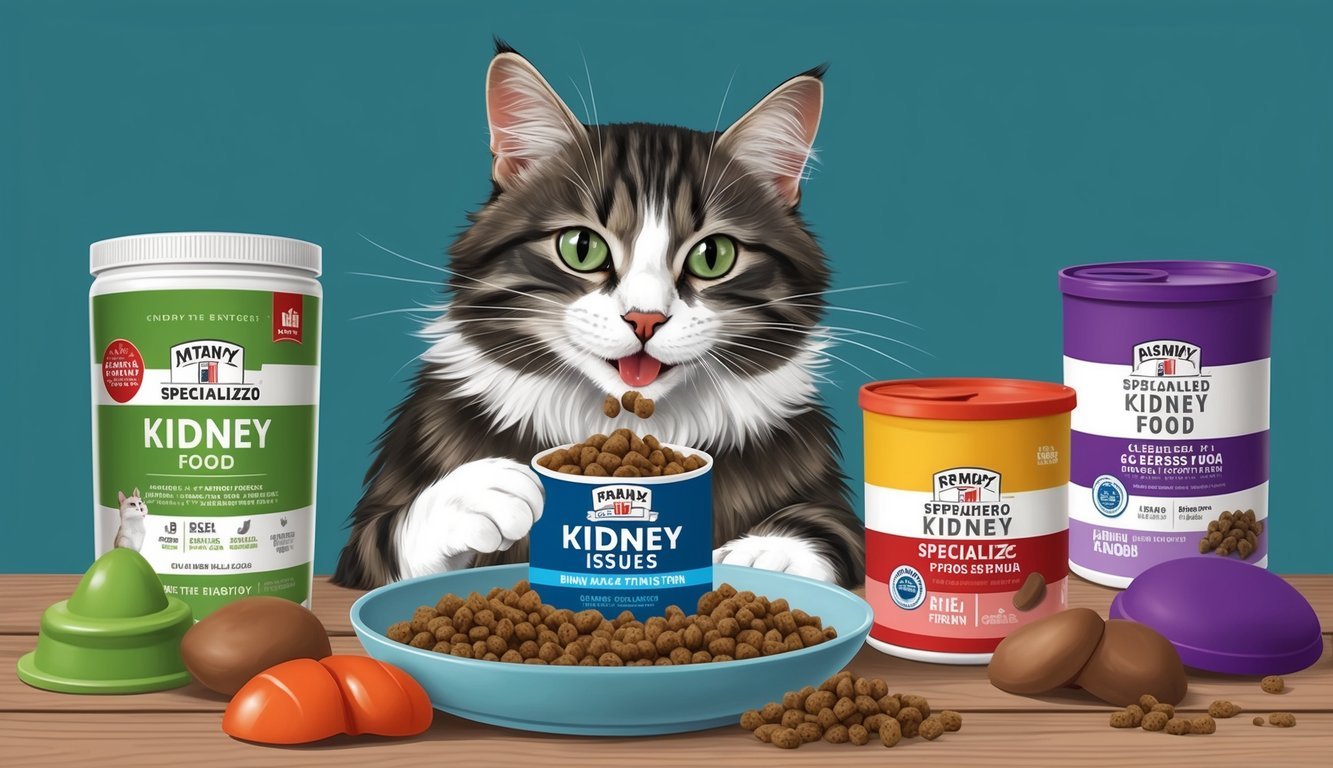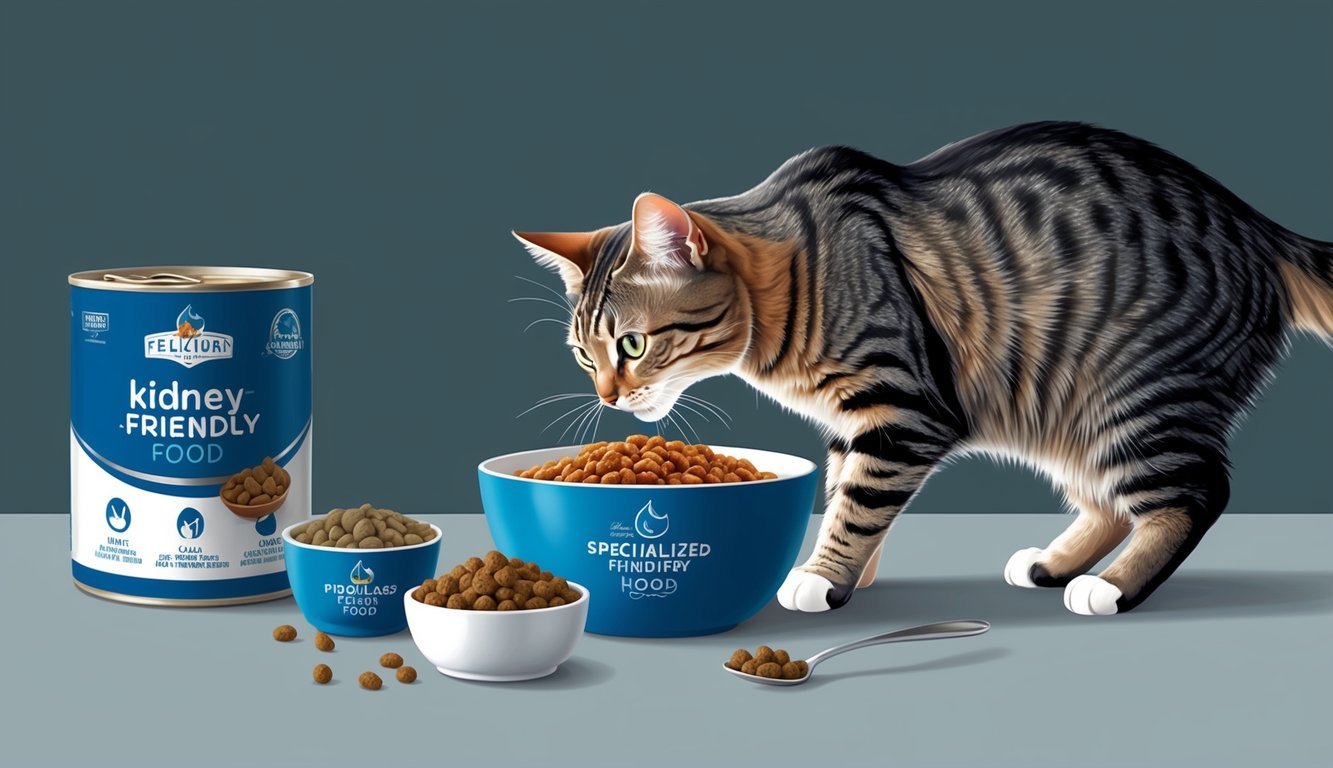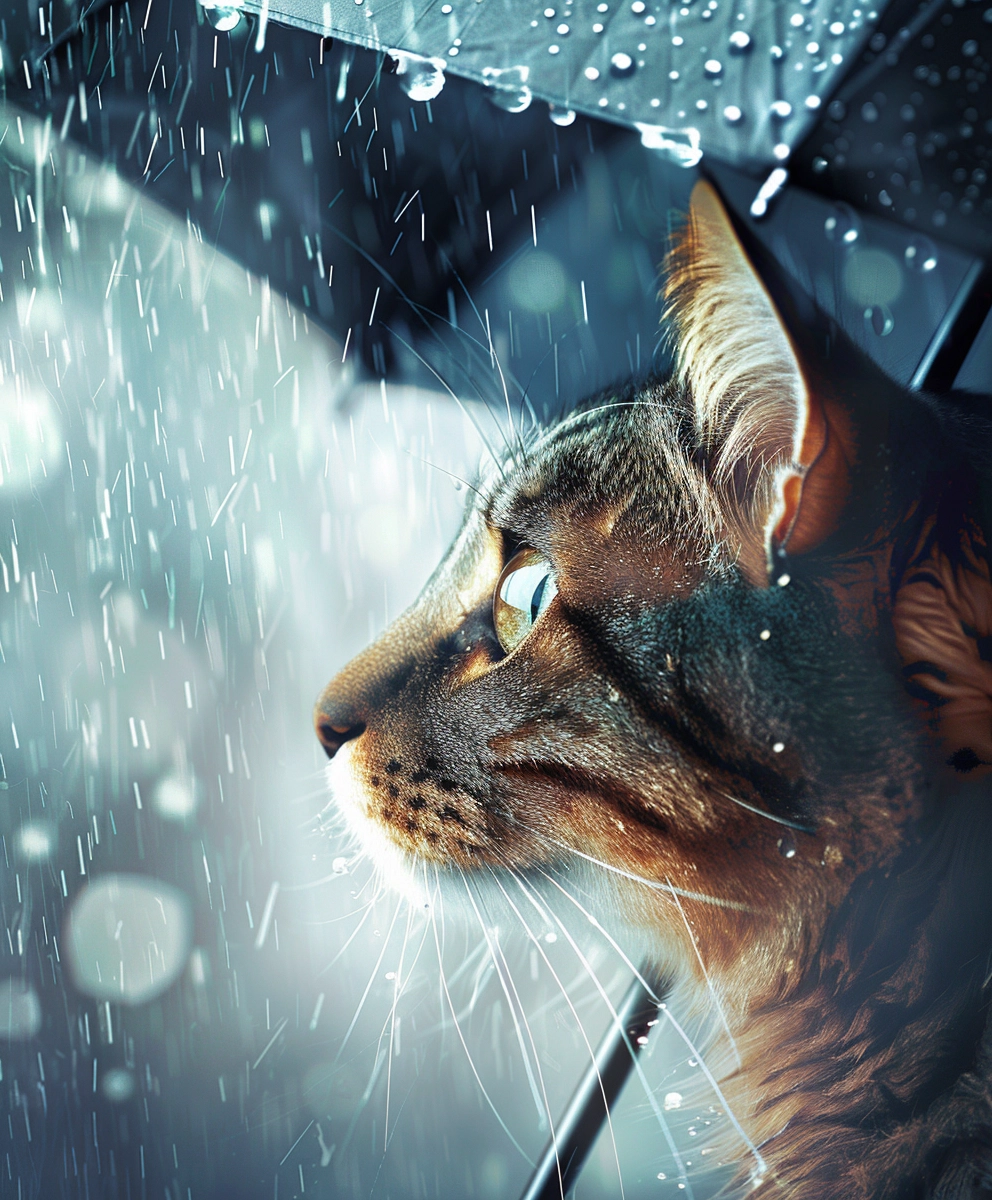Cats are precious companions, and when your furry friend is diagnosed with kidney disease, managing their health becomes a priority. Your cat can thrive despite chronic kidney disease (CKD) with the right kidney food. Transitioning to a kidney-friendly diet can significantly impact their quality of life and aid in managing symptoms effectively.
As you consider options for your cat’s diet, it’s important to understand the unique nutritional needs that come with kidney disease.
A balanced approach involves selecting food that is low in phosphorus and protein, while also being palatable enough for your cat to enjoy.
This article will guide you through the intricacies of choosing the best kidney food for your cat to ensure they maintain their health and happiness.
Taking the time to educate yourself on the available food choices will empower you to make informed decisions for your pet.
From understanding specific ingredient benefits to exploring some top recommended brands, you’ll find valuable insights that can help you support your cat’s kidney health better than ever.
Key Takeaways
- Choosing the right food can improve your cat’s quality of life with kidney disease.
- Look for diets that are low in phosphorus and protein for optimal renal health.
- Regular vet consultations and proper diet adjustments are crucial for managing kidney health.
Understanding Kidney Disease in Cats
Kidney disease is a serious health issue that affects many cats, and it’s crucial to recognize the signs early.
This section will delve into how kidneys function, how to identify chronic kidney disease, and the complications it can lead to.
The Basics of Kidney Function and Health
Your cat’s kidneys play a vital role in filtering waste from the blood.
They help maintain fluid balance, electrolytes, and blood pressure.
Each kidney contains millions of tiny units called nephrons that filter the blood and produce urine.
When kidneys function properly, they remove toxins and excess nutrients.
When they fail, waste builds up in the bloodstream.
This condition is referred to as chronic renal insufficiency (CRF) or chronic kidney disease (CKD).
Diet plays a pivotal role in kidney health.
Feeding your cat food that supports renal function can significantly improve their quality of life.
If you have any concerns about your cat’s kidney health, consult your veterinarian for tailored advice.
Recognizing Chronic Kidney Disease (CKD)
Chronic Kidney Disease can be subtle at first.
Early signs include increased thirst and frequent urination.
As the disease progresses, you may notice weight loss, reduced appetite, and lethargy.
Other symptoms might include vomiting, bad breath, and changes in coat quality.
It’s essential to monitor these indicators, as early detection is crucial for effective management.
The International Renal Interest Society (IRIS) provides stages for CKD, which can help in diagnosing and formulating a treatment plan.
Regular vet check-ups can help catch kidney issues before they become severe.
Blood tests and urine analysis are common tools for evaluating kidney function.
Complications of Kidney Diseases in Cats
Kidney disease can lead to several complications.
One significant risk is anemia, caused by reduced erythropoietin production, which can affect your cat’s energy levels and overall health.
Another serious complication is hypertension, or high blood pressure, which can further damage the kidneys and other organs.
Cats with CKD may also experience dehydration and electrolyte imbalances, which can lead to additional health problems.
You’ll want to keep an eye on your cat’s water intake and overall behavior.
Creating a supportive environment and ensuring proper nutrition is key to managing these complications.
Always consult with your veterinarian for tailored solutions to keep your cat happy and healthy.
The Role of Diet in Managing Kidney Disease
Diet plays a crucial role in managing kidney disease in cats.
It is essential to focus on specific nutrients that support kidney function and minimize the workload on these vital organs.
How Diet Affects Cat Kidneys
Your cat’s diet can significantly influence its kidney health.
Foods high in phosphorus can strain the kidneys.
Many veterinary diets are formulated to have lower phosphorus content, which helps reduce kidney stress.
Consider a prescription diet specifically designed for kidney support.
These diets typically have controlled protein levels, which help maintain muscle mass while reducing waste products the kidneys must filter.
Adding omega-3 fatty acids can also be beneficial.
They have anti-inflammatory properties that may help improve kidney function over time.
A good quality diet can slow progression and enhance your cat’s quality of life.
Essential Nutrients for Kidney Support
When managing kidney disease, certain nutrients become paramount. High-quality proteins are essential; they provide necessary amino acids while being easier on the kidneys than lower-quality proteins.
Incorporate antioxidants into your cat’s diet.
They help combat oxidative stress and inflammation associated with kidney disease.
You can often find these in fruits and vegetables suitable for cats, like blueberries.
Don’t forget the importance of B vitamins.
These vitamins assist in energy metabolism and can help manage appetite, which is often compromised in kidney disease.
A carefully balanced diet with these nutrients can make a significant difference in your cat’s kidney health.
Selecting The Right Food for Renal Health
When it comes to your cat’s kidney health, choosing the right food is crucial.
Understanding the types of food available, the importance of moisture, and how to balance essential nutrients will guide you in making the best choices for your feline companion.
Choosing Between Wet and Dry Food
Cats can thrive on either wet or dry food, but each has its benefits.
Wet food typically contains a higher moisture content, which is vital for kidney function.
It helps keep your cat hydrated, especially if they don’t drink enough water on their own.
Many find that cats prefer the taste and texture of wet food, making it easier to feed them.
Dry cat food often has a longer shelf life and is easier to manage in terms of storage.
However, picking a high-quality dry food with controlled phosphorus and protein levels is key.
Look for brands specifically formulated for renal support to ensure your cat gets the nutrients they need.
The Importance of Moisture in Feline Diets
Moisture plays a significant role in a feline diet, especially for cats with kidney issues.
A diet rich in moisture helps dilute toxins in the kidneys.
Dehydration can worsen kidney disease, leading to more complications.
When selecting food, consider that wet food can contain up to 70-80% moisture, significantly aiding hydration.
If your cat prefers dry food, try incorporating water or broth to increase moisture content.
Monitoring your cat’s water intake ensures they remain well-hydrated, which is essential for kidney health.
Balancing Protein and Phosphorus Levels
Finding the right balance of protein and phosphorus is essential for managing kidney health.
Cats require protein for muscle maintenance, but too much can strain their kidneys.
Look for foods that offer moderate protein levels, specifically designed for renal care.
Phosphorus, when elevated, can cause further damage to the kidneys.
Foods low in phosphorus help manage this risk.
For example, many specialized diets target approximately 0.49% phosphorus and controlled protein levels to support kidney function.
Regularly consult with your veterinarian to tailor your cat’s diet based on their specific needs and laboratory results.
Recommended Foods and Brands for Kidney Care
When it comes to managing kidney health in cats, selecting the right food is crucial.
Some brands specifically create diets aimed at renal support.
You’ll find both prescription and popular non-prescription options that cater to these needs.
Prescription Diets Specifically for Kidney Issues
Prescription diets are often the best option for cats diagnosed with kidney disease.
One notable choice is Hill’s Prescription Diet k/d Kidney Care.
This food is specially designed to support kidney function and features controlled protein levels, low phosphorus, and essential nutrients.
Another prominent option is Royal Canin Veterinary Diet Renal Support.
It’s designed to maintain appetite and provides highly palatable wet and dry options.
Lastly, Purina Pro Plan Veterinary Diets NF Kidney Function Early Care is excellent for early-stage kidney disease.
It features low protein and phosphorus, designed to optimize kidney health while providing vital nutrition.
Popular Brands and Their Renal Formulas
If you’re looking for non-prescriptive options, several renowned brands offer specialized formulas. Blue Buffalo has a Natural Veterinary Diet focused on kidney and mobility support.
It offers high-quality protein sources while maintaining low phosphorus levels.
Wellness also features a range of kidney-friendly foods, such as their grain-free wet cat food.
These provide hydration and essential nutrients without overloading on minerals.
Lastly, Forza10 Nutraceutic Actiwet Renal Support provides a low-phosphorus formula packed with beneficial ingredients.
This can help improve overall well-being.
Designing a Kidney-Supportive Feeding Routine

Creating a kidney-supportive feeding routine for your cat is vital for managing chronic kidney disease (CKD).
This process involves careful consideration of feeding frequency and the appropriate use of supplements and additives that promote kidney health.
The Role of Feeding Frequency
Establishing the right feeding frequency can significantly aid in nutrient absorption and overall kidney function.
Cats with kidney issues often benefit from smaller, more frequent meals rather than two large servings.
Aim for 3-4 meals per day.
This helps maintain stable energy levels and reduces the workload on your cat’s kidneys.
Adjust the portion sizes based on your cat’s weight and activity level.
Also, consider encouraging hydration, as water intake is crucial for kidney health.
You can offer wet food, which typically has higher moisture content, or place multiple water bowls around the house to promote drinking.
Supplements and Additives for Kidney Health
Supplements can play a crucial role in supporting your cat’s kidney function.
Various products are designed specifically for renal health, and they can enhance the effectiveness of a kidney support diet.
Look for these key additives:
- Low Sodium: Reducing sodium intake helps lower blood pressure and decreases kidney strain.
- Controlled Phosphorus: This is critical because high phosphorus levels can worsen kidney function. Choose foods with low phosphorus levels.
- B-complex Vitamins: These support nutrient breakdown and help your cat feel more energetic.
Before introducing any supplements, consult your veterinarian for tailored advice.
Remember that the right feeding routine can be a game changer in your cat’s nutritional management.
Managing Kidney Health Beyond Diet
Maintaining kidney health in cats involves more than just diet.
Ensuring your cat is well-hydrated and making specific lifestyle adjustments can significantly impact their overall well-being and quality of life, especially if they are dealing with chronic renal failure.
Ensuring Proper Hydration
Hydration is vital for maintaining kidney function and urinary tract health.
However, cats often don’t drink enough water, which can lead to further kidney strain.
To encourage hydration:
- Provide Fresh Water: Always have clean, fresh water available. Change it daily to keep it appealing.
- Use Fountains: Many cats prefer running water. A pet water fountain can entice them to drink more.
- Add Water to Food: Mixing water into wet food can boost their intake indirectly.
Keep an eye on your cat’s urine output.
This can indicate whether they are adequately hydrated.
If your cat shows signs of dehydration, such as lethargy or dry gums, contact your vet for advice.
Lifestyle Adjustments for Renal Care
Lifestyle changes can help support your cat’s kidneys alongside their diet.
These adjustments can enhance their comfort and promote better health.
Consider the following tips:
- Regular Vet Visits: Schedule routine check-ups to monitor kidney function and adapt care as needed.
- Stress Reduction: Keep your cat’s environment calm. Reduce stressors that may impact their health and emotional well-being.
- Exercise: Encourage gentle play and movement. This can enhance overall vitality and support kidney function.
These lifestyle changes play a crucial role in managing chronic renal failure and improving your feline friend’s quality of life.
Prioritize their comfort and health by creating a supportive home environment.
Navigating Challenges and Advanced Kidney Issues

Caring for a cat with advanced kidney issues means tackling a few significant challenges.
Two key conditions to address are metabolic acidosis and secondary hyperparathyroidism, which can severely affect your cat’s health.
Addressing Metabolic Acidosis
Metabolic acidosis is common in cats with kidney disease.
It happens when the kidneys can’t effectively remove acids from the blood.
This condition can lead to symptoms such as lethargy, decreased appetite, and vomiting.
To manage metabolic acidosis, your vet may suggest medications such as potassium citrate or sodium bicarbonate.
These can help neutralize the acid levels in your cat’s system.
Dietary changes are also essential.
Focus on low-protein diets with high-quality amino acids.
Here’s a quick list of suitable dietary adjustments:
- Increase high-quality carbohydrates.
- Limit phosphorus-rich foods.
- Ensure plenty of fresh water for hydration.
Regular blood tests will help monitor your cat’s acid-base balance and overall renal health.
Handling Secondary Hyperparathyroidism
Secondary hyperparathyroidism often occurs in cats with chronic kidney disease.
This condition arises when low phosphate levels lead to increased parathyroid hormone (PTH).
Elevated PTH can cause bone pain and other complications.
It’s crucial to monitor calcium and phosphate levels in your cat’s blood.
Your vet might recommend specific medications to manage these hormones effectively.
Adjusting your cat’s diet can also help.
Consider foods enriched with omega-3 fatty acids.
These can have a positive impact on kidney function and hormone regulation.
Here’s what to focus on:
- Use high-quality renal diets with controlled phosphorus.
- Integrate supplements that support bone health.
Frequently Asked Questions

Navigating kidney disease in cats can be challenging.
Understanding what to feed your cat and the implications of diet choices is essential for managing their health effectively.
What’s the best kind of food for cats who have kidney disease?
The best food for cats with kidney disease is low in phosphorus and protein, designed to support renal health.
Look for diets approved for kidney care, often labeled as renal or prescription diets.
Can I prepare homemade food for a cat with kidney issues, and how?
Yes, you can prepare homemade food for your cat with kidney problems.
It’s crucial to consult your veterinarian to ensure that your recipe meets their nutritional needs and is low in phosphorus and sodium.
Are there any cat foods I should avoid if my cat has kidney disease?
Avoid cat foods high in protein and phosphorus, as they can put additional strain on your cat’s kidneys.
Generally, you should steer clear of regular cat food brands not specifically designed for renal health.
Can feline kidney function be improved with diet, and what should I know?
While diet alone cannot reverse kidney damage, it can help slow down the progression of kidney disease.
Focus on low-protein, low-phosphorus foods and consider additions like Omega-3 fatty acids for potential benefits.
Does tuna pose any risks for cats suffering from kidney problems?
Tuna can be risky for cats with kidney issues, as it is high in phosphorus and sodium.
While an occasional small amount may be tempting, it’s best to limit or avoid it in their diet.
What makes renal diets different for cats with kidney disease?
Renal diets are formulated with lower levels of protein and phosphorus.
They are specifically designed to reduce kidney strain.
They often include added vitamins and supplements to support overall feline health while managing kidney conditions.

